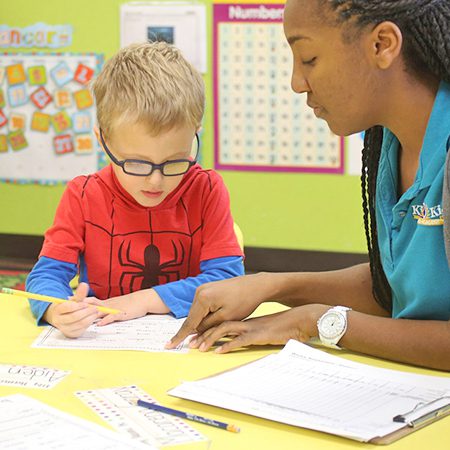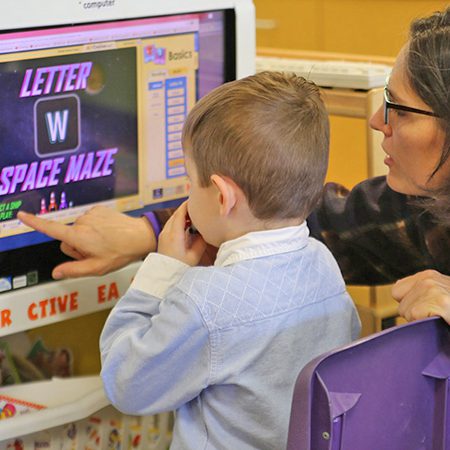School is in session! Now that you’re through the hectic back to school season, it’s a good time to begin developing good communication and a collaborative relationship with your child’s teacher.
Parents, caregivers, and teachers play the biggest role in shaping children through their early developmental years. It’s no surprise that the relationship between these three groups, especially parents and teachers, has an outsized impact on children. Research shows that children’s social skills, emotional well-being and learning all improve when their parents and teachers communicate and collaborate. They display fewer behavioral problems, adapt better to new situations and improve more in the classroom.
How to Develop Good Parent-Teach Communication
 The first step in building a strong relationship with your child’s teacher is developing good communication. You can start by asking the teacher what their primary communication methods are, and how they prefer to be contacted.
The first step in building a strong relationship with your child’s teacher is developing good communication. You can start by asking the teacher what their primary communication methods are, and how they prefer to be contacted.
Teachers employ many different communication methods to let parents know what is happening in the classroom from written notes to digital newsletters. Knowing where to look for information about what your child is learning and how they are progressing will relieve stress for you and them. Finding out if they prefer to be contacted by phone, email or text will give you the best direct line to use when you need to set up a meeting or let them know about a situation or schedule change.
Letting the teacher know early on that you want to partner with them to help your child reach their educational goals will go a long way too.
When you meet with them, be sure to bring any questions that you have. Open up about your child’s strengths and weaknesses along with their likes and dislikes. Also, let the teacher know what you hope that your child learns that year. All this information will help the teacher understand your child more and allow you to start a two-way conversation about them.
Keep in mind that how your child behaves at home may be different from how they behave at school. Your child’s teacher can share valuable insights with you too!
Be aware that the rush after school isn’t a great time for a heart-to-heart. If you want to have a thoughtful or in-depth conversation about your child’s development, be sure to reach out to schedule a time that’s convenient for you and the teacher. But don’t let this stop you from taking the time to say a quick ‘Hello’ in the pickup line! That simple gesture can help you maintain a good rapport.
How to Develop a Collaborative Parent-Teach Relationship
 Developing two-way communication with your child’s teacher will help you to know what to tackle at home. The best way to collaborate with them is to reinforce what they are learning in the classroom at home.
Developing two-way communication with your child’s teacher will help you to know what to tackle at home. The best way to collaborate with them is to reinforce what they are learning in the classroom at home.
Carving out a consistent time and space in your home to work on homework is the first step. Incorporating interactive activities and games related to what your child is learning is a fun way to build on the knowledge and skills they’re developing. Reading to your child every night is another way that you can be a collaborative partner in their education.
Collaborating also means working with your child’s teacher to come up with creative solutions together when your child hits roadblocks in their education or struggles with a behavioral issue. Working together to figure out the best way to help your child overcome these obstacles (without placing blame) will benefit all of you.
Communication and collaboration are the foundations of a strong parent-teacher relationship. Devoting time and energy to developing this relationship and incorporating learning at home will help your child to thrive in school and in life.
Here at Kids R Kids Avalon Park, our teachers are committed to developing good communication and strong relationships with parents. We want to see every child in our care grow academically and develop the emotional and social skills that will make them kindergarten ready.